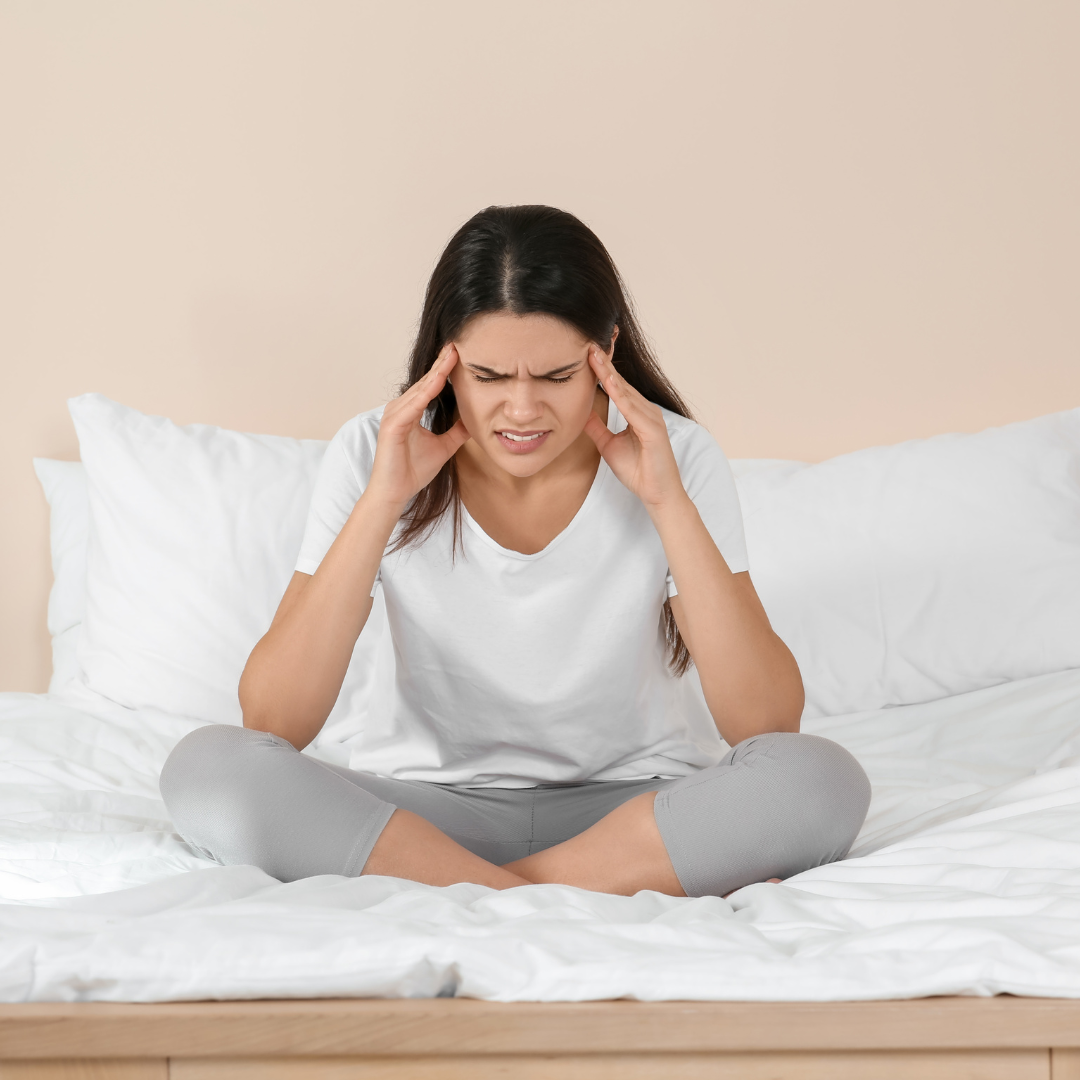Insomnia isn’t just the occasional restless night—it’s a repeated difficulty in falling asleep, staying asleep, or getting restful sleep, even when you have the chance to do so. But what really causes insomnia in adults? Let’s explore the many reasons behind it, from lifestyle choices to medical conditions, so you can better understand this frustrating sleep disorder.
Understanding Insomnia
Before looking at the causes, it’s important to know that insomnia can be short-term (acute) or long-term (chronic).
- Acute insomnia usually lasts for days or weeks and is often triggered by stress, travel, or temporary life changes.
- Chronic insomnia occurs at least three nights a week for three months or more. It’s often linked to underlying health problems, long-term stress, or poor sleep habits.
Now, let’s break down the major causes of insomnia in adults.
1. Stress and Anxiety
Stress is one of the biggest culprits behind insomnia. When your mind is racing with worries about work, finances, family, or health, it becomes nearly impossible to relax enough to sleep. Anxiety disorders can make this worse, causing constant overthinking, restlessness, and even nighttime panic attacks.
Stress activates the fight-or-flight response, releasing hormones like cortisol, which keep your brain alert. This makes it difficult to wind down at bedtime, even if you feel tired.
2. Poor Sleep Habits
Your daily habits can directly affect how well you sleep. Common poor sleep behaviors include:
- Going to bed and waking up at inconsistent times.
- Using smartphones, laptops, or watching TV right before bed (blue light disrupts melatonin).
- Drinking caffeine or alcohol late in the evening.
- Taking long naps during the day.
- Sleeping in a noisy or uncomfortable environment.
These habits confuse your body’s internal clock (circadian rhythm), making it harder to fall asleep naturally.
3. Medical Conditions
Many adults develop insomnia as a result of underlying medical conditions. These include:
- Chronic pain from arthritis, migraines, or back problems.
- Asthma or other breathing issues that disturb sleep.
- Heartburn or acid reflux causing discomfort when lying down.
- Diabetes leading to frequent urination or nerve pain.
- Hyperthyroidism, where excess thyroid hormones keep you feeling alert.
In such cases, treating the root health condition often improves sleep.
4. Mental Health Disorders
Mental health and sleep are deeply connected. Conditions like depression, bipolar disorder, and post-traumatic stress disorder (PTSD) are strongly linked with insomnia. For example:
- People with depression may wake up too early and struggle to fall back asleep.
- Those with PTSD often experience nightmares, leading to restless nights.
- Bipolar disorder can cause cycles of little to no sleep during manic episodes.
When the brain’s chemical balance is disrupted, sleep patterns naturally suffer.
5. Medications
Sometimes, insomnia is a side effect of medications. These include:
- Antidepressants
- Blood pressure medications
- Asthma medications
- Steroids
- Decongestants
If you notice sleep problems after starting a new medication, it’s important to talk with your doctor—never stop a prescription on your own.
6. Lifestyle Factors
Modern lifestyles contribute heavily to insomnia. A few common examples are:
- Shift work: Working night shifts or rotating schedules disrupts the body’s natural circadian rhythm.
- Travel: Jet lag from moving across time zones confuses the body clock.
- Lack of physical activity: Sedentary lifestyles can make it harder to fall asleep.
- Unhealthy diet: Eating heavy or spicy meals before bedtime may cause discomfort and wakefulness.
7. Hormonal Changes
Hormones also play a role in adult insomnia, especially for women. Menopause, pregnancy, and monthly hormonal fluctuations can all disrupt sleep. Hot flashes, night sweats, and hormonal imbalances may make staying asleep difficult.
Men, too, can experience hormone-related sleep issues. Low testosterone levels, often seen in older men, may contribute to poor sleep quality.
8. Aging and Insomnia
As people age, insomnia tends to become more common. Older adults may experience:
- Changes in sleep cycles (less deep sleep).
- Medical problems and medications affecting sleep.
- Reduced melatonin production.
- More nighttime awakenings.
This doesn’t mean insomnia is a “normal” part of aging, but it does mean older adults are at a higher risk.
9. Caffeine, Alcohol, and Nicotine
Substances we consume have a big impact on sleep:
- Caffeine (coffee, tea, energy drinks) can stay in your system for hours, keeping your brain active.
- Nicotine, a stimulant found in cigarettes, disrupts sleep cycles.
- Alcohol may help you fall asleep quickly, but it reduces deep sleep and causes frequent awakenings.
Over time, reliance on these substances can create a cycle of poor sleep.
10. Sleep Disorders
Sometimes, insomnia isn’t the problem itself but a symptom of another sleep disorder, such as:
- Sleep apnea, where breathing stops temporarily during sleep.
- Restless leg syndrome (RLS), causing uncomfortable sensations in the legs.
- Circadian rhythm disorders, where the internal clock is misaligned.
These conditions require specific treatments to restore healthy sleep.
How to Manage and Prevent Insomnia
The good news is that insomnia can often be managed by identifying and addressing its cause. Here are some practical steps:
- Practice good sleep hygiene – keep a regular schedule, avoid screens before bed, and create a calm sleep environment.
- Reduce stress – try meditation, breathing exercises, or journaling to calm the mind.
- Stay active – daily exercise helps regulate your sleep cycle.
- Limit stimulants – cut back on caffeine, alcohol, and nicotine.
- Seek medical help – if insomnia is severe or long-term, consult a doctor or sleep specialist.
Conclusion
Insomnia in adults can stem from many causes—stress, poor sleep habits, medical conditions, mental health struggles, lifestyle choices, or even age-related changes. The key to overcoming insomnia is identifying what’s interfering with your sleep and taking small, consistent steps to fix it. While occasional sleepless nights are normal, chronic insomnia should never be ignored. A well-rested body and mind aren’t just about comfort—they’re essential for overall health, productivity, and happiness.
FAQs About What Causes Insomnia in Adults
1. Can insomnia go away on its own?
Yes, short-term insomnia caused by temporary stress or lifestyle changes often improves once the situation is resolved. However, chronic insomnia usually requires treatment and lifestyle adjustments.
2. Is insomnia more common in men or women?
Women are more likely to experience insomnia, especially due to hormonal changes during menstruation, pregnancy, and menopause.
3. How many hours of sleep do adults really need?
Most adults need 7–9 hours of sleep per night. Anything less on a consistent basis can lead to fatigue, mood changes, and health risks.
4. Can diet affect insomnia?
Yes. Eating heavy, spicy, or sugary meals close to bedtime can disturb sleep. On the other hand, foods rich in magnesium, tryptophan, and melatonin (like nuts, bananas, and cherries) may help promote better sleep.
5. When should I see a doctor about insomnia?
You should seek medical advice if insomnia lasts for more than three weeks, interferes with daily life, or is accompanied by symptoms like severe fatigue, mood changes, or breathing issues during sleep.
Social Sharing
Your Content Goes Here
Latest Posts





